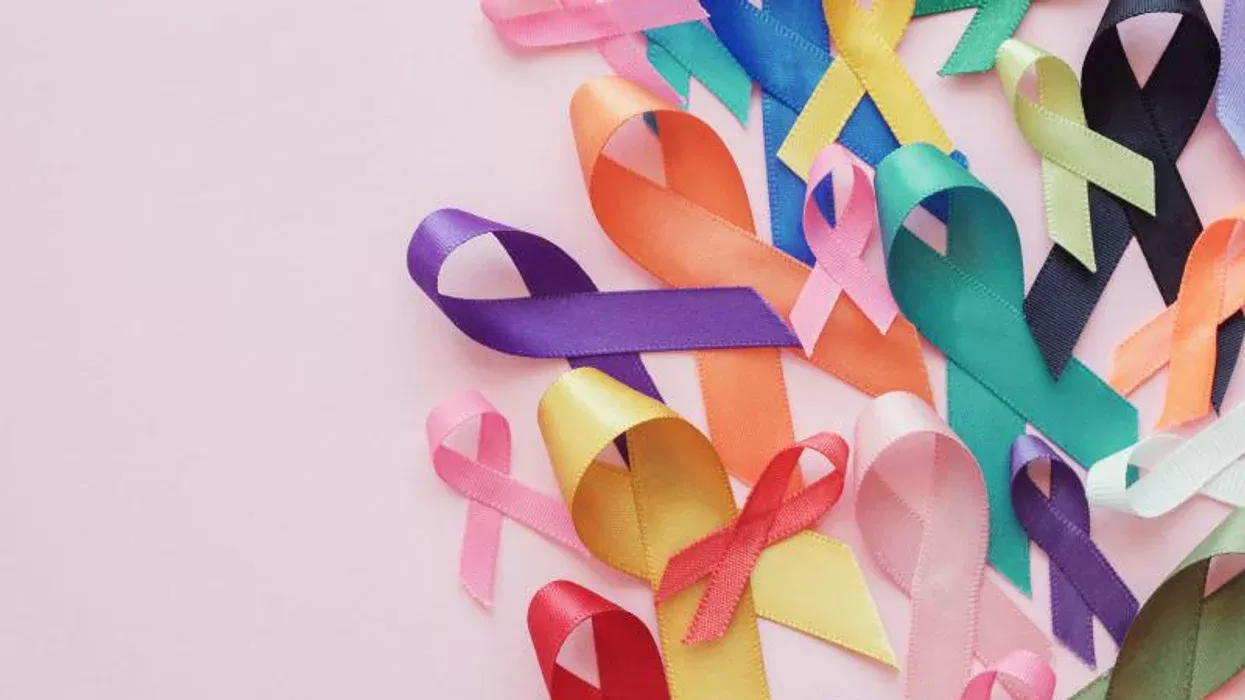
Cancer Awareness Days in September
September may be known for crisper temperatures and the smells of autumn tailgating, but it is also a month full of cancer awareness. September is host to Blood Cancer Awareness Month, Childhood Cancer Awareness Month, Gynecological Cancer Awareness Month, National Ovarian Cancer Awareness Month, Prostate Cancer Awareness Month, World Cancer Research Day, and National Hereditary Breast and Ovarian Cancer Week.
Public health communicators and members of the general public should understand the aim behind these awareness months and preventive measures that can lessen the risk of ever developing cancer.
Here’s what you need to know about the various cancers recognized in September, including prevalence and preventative measures that you can take to keep you and your loved ones safe.
Blood Cancer Awareness Month
In September, organizations dedicated to supporting people with blood cancers such as leukemia and lymphoma work to raise awareness and increase research funding.
Leukemia is cancer in which the bone marrow produces too many white blood cells. This can cause many complications because the excess white blood cells can crowd out other types of cells. Leukemia is the most common cancer in children. According to the American Association for Cancer Research (AACR), more than 60,000 cases of leukemia are diagnosed each year.
Lymphoma is cancer that develops out of the lymph tissue of the immune system. You have probably heard of the two main types—Hodgkin Lymphoma and Non-Hodgkin Lymphoma. Non-Hodgkin Lymphoma is more common than Hodgkin Lymphoma, and more than 80,000 people are diagnosed with this condition each year.
Childhood Cancer Awareness Month
In September, communities around the country also recognize Childhood Cancer Awareness month to draw attention to all of the cancers that affect children. While childhood cancers are rare, they tend to be more aggressive than adult cancers. There are many types of childhood cancers, including osteosarcoma (bone cancer), brain cancers, blood cancers, neuroblastoma, and retinoblastoma, among many others.
According to the American Childhood Cancer Organization (ACCO), an estimated 10,000 children under the age of 15 are diagnosed with cancer each year. These children must face treatments such as chemotherapy, radiation, and surgery instead of enjoying the normal activities of childhood. This is why raising awareness about childhood cancer throughout September is so important.
Gynecological Cancer Awareness Month
September also represents Gynecological Cancer Awareness Month, drawing attention to the 89,000 women diagnosed with cancer of the cervix, ovaries, fallopian tubes, uterus, or external genital structures annually.
Unlike some cancers, there is a vaccine and screening test available that can help women lower their risk of developing gynecological cancer like cervical cancer. The US Centers for Disease Control and Prevention (CDC) notes that the HPV vaccine and cervical cancer screening tests can help prevent gynecological cancer or detect it at an early, treatable stage.
Prostate Cancer Awareness Month
Prostate cancer is the second most common cancer in men, and the month of September is devoted to raising awareness about this cancer and the toll that it can take. According to the American Cancer Society, more than 268,000 new cases of prostate cancer are diagnosed each year, and about 34,500 men die from prostate cancer annually. The American Cancer Society recommends that men make an informed decision with their healthcare provider regarding being screened for prostate cancer, usually sometime after age 40.
What to Know About Cancer Prevention
Some cancers recognized in September—such as many childhood cancers and blood cancers like leukemia—have poorly understood risk factors. If you are female, particularly if you have a history of gynecological cancers in your family, you may want to discuss cancer prevention methods, such as using a birth control pill, with your medical provider.
Regardless of your sex assigned at birth, you can lower your risk of other types of cancer that develop in adulthood using lifestyle measures. This includes getting the recommended amount of physical activity each week, maintaining a healthy weight, eating a nutritious diet, avoiding smoking, getting proper sleep, and limiting your alcohol intake. For more tips about general cancer prevention, visit the CDC’s website on cancer prevention.
How to Learn More About Cancer Awareness
To learn more about different types of cancers, including events you can participate in to raise cancer awareness during September, visit the American Cancer Society’s events page.
Research and materials for this article were compiled, written, and distributed on behalf of the National Public Health Information Coalition. The views and opinions expressed in this blog are those of the various authors and do not necessarily reflect the official policy or position of the National Public Health Information Coalition or its members.
Sources:
[1] Leukemia and Lymphoma Awareness Month. https://www.aacr.org/patients-caregivers/awareness-months/leukemia-and-lymphoma-awareness-month/
[2] Types of Childhood Cancer. https://www.acco.org/types-of-childhood-cancer/
[3] Get Involved. https://www.acco.org/get-involved/
[4] Gynecological Cancer Awareness Month. https://www.aacr.org/patients-caregivers/awareness-months/gynecologic-cancer-awareness-month/#:~:text=September%20is%20Gynecologic%20Cancer%20Awareness%20Month.&text=Infection%20of%20the%20cervix%20with,the%20cause%20of%20cervical%20cancer.
[5] Gynecological Cancer Awareness. https://www.cdc.gov/cancer/dcpc/resources/features/gynecologiccancers/index.htm
[6] Prostate Cancer Month. https://www.urologyhealth.org/media-center/prostate-cancer-info-center#:~:text=September%20is%20Prostate%20Cancer%20Awareness,most%20common%20cancer%20among%20men.
[7] Healthy Choices. https://www.cdc.gov/cancer/dcpc/prevention/other.htm
[8] Walk/Run Events. https://www.cancer.org/involved/fundraise/walk-run-events.html

